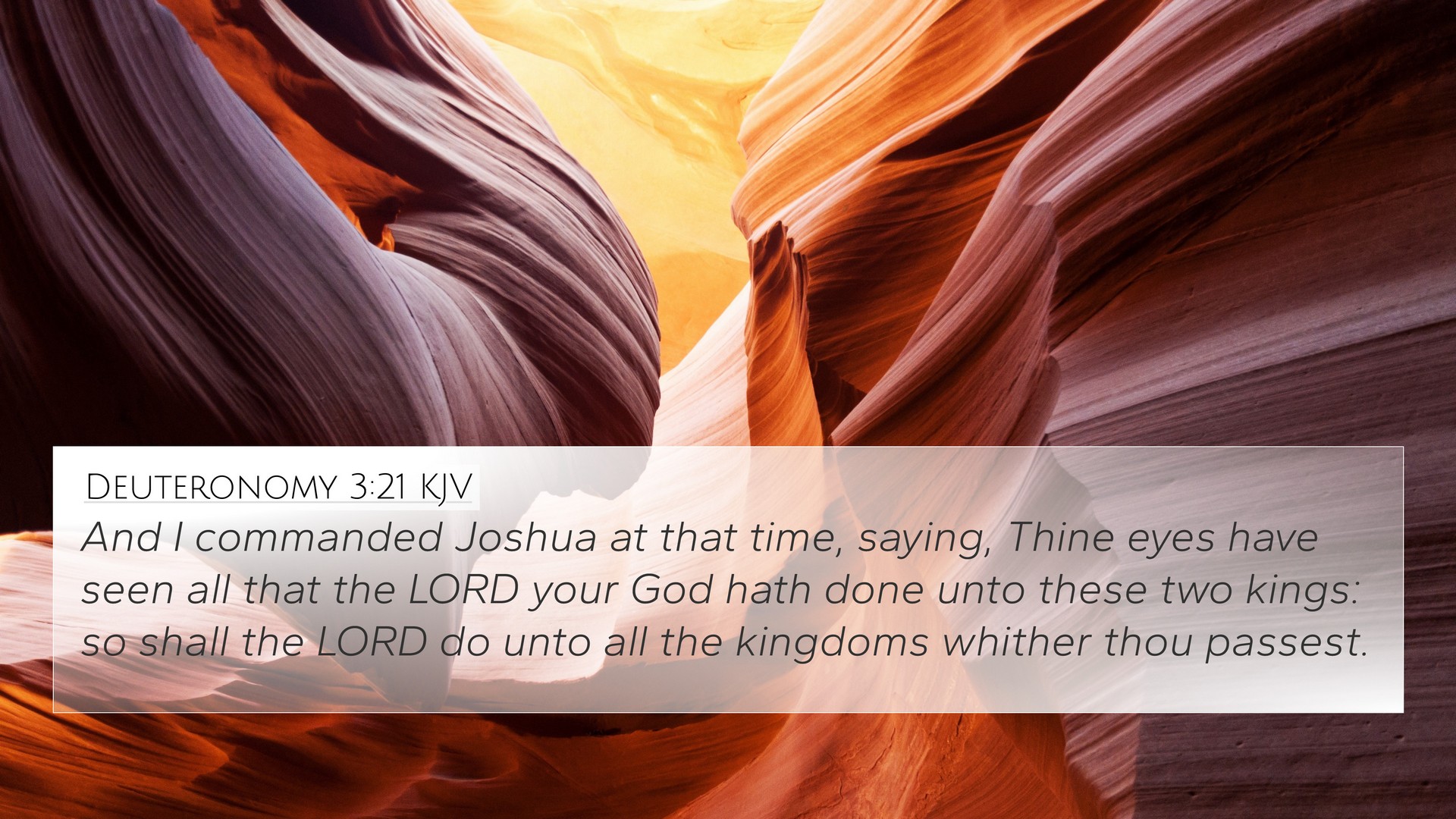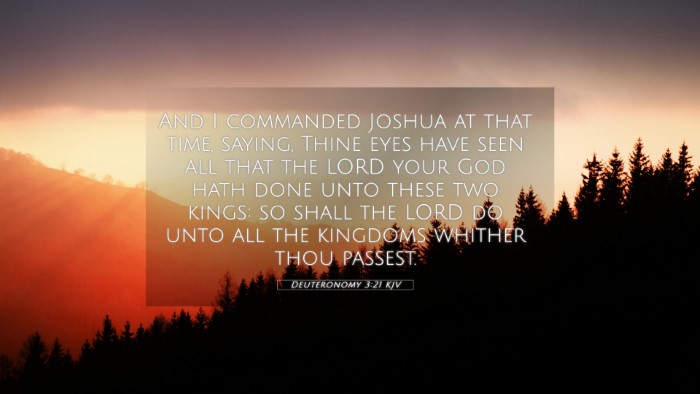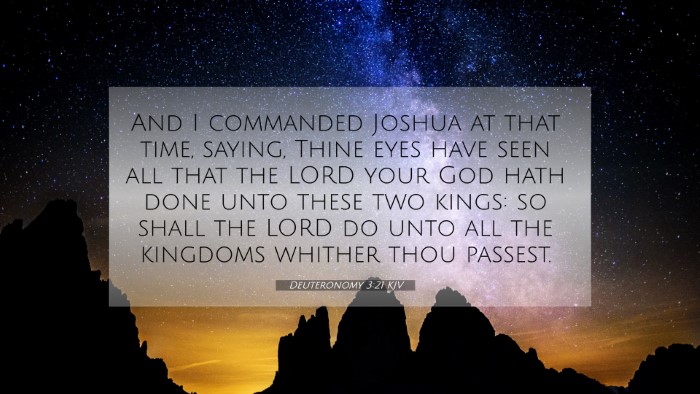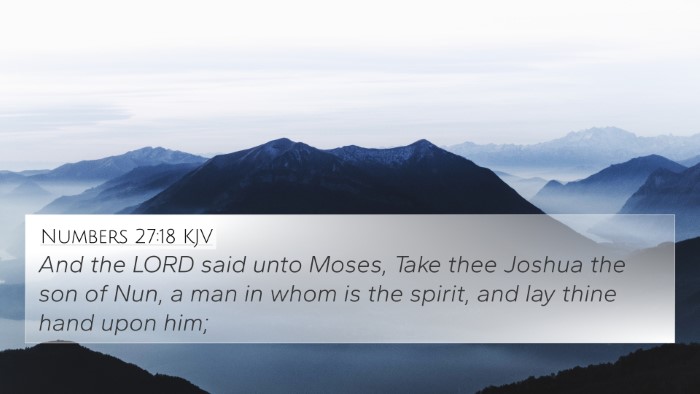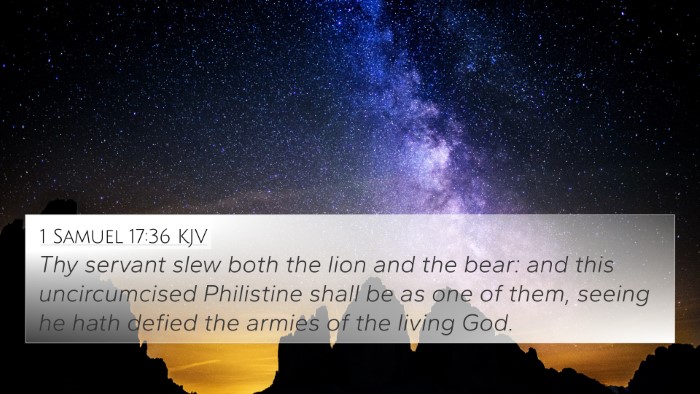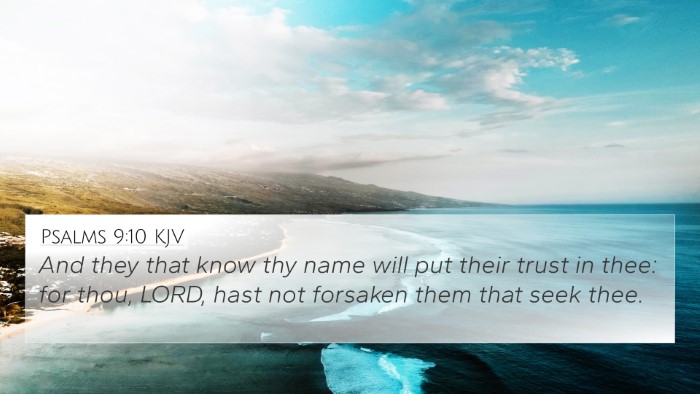Understanding Deuteronomy 3:21
Verse: "And I commanded Joshua at that time, saying, 'Thine eyes have seen all that the LORD your God hath done unto these two kings: so shall the LORD do unto all the kingdoms whither thou goest.'
Context: The book of Deuteronomy serves as a reminder of God’s covenant and the importance of obedience to His commands. In this particular passage, Moses is addressing Joshua and reminding him of God’s previous victories.
Summary of Verse Meaning
This verse encapsulates a moment of encouragement and directive command as Moses prepares Joshua for the leadership responsibilities he must undertake. It serves several key purposes:
- **Reminder of God's Might**: Joshua, having witnessed the defeat of two kings, is reminded of God’s power and faithfulness in delivering victory. This exemplifies the importance of recalling past events to reinforce faith for future challenges.
- **Encouragement for Future Battles**: Moses encourages Joshua by affirming that God, who has given victories before, will continue to provide success as they face new kingdoms. This builds confidence in God's unchanging nature.
- **Call for Obedience**: There is an implicit message that Joshua must remain obedient to God’s commands for these victories to continue. The connection between obedience and God's blessings is a repeated theme throughout the Scriptures.
Commentary Insights
Matthew Henry: Henry highlights the importance of remembering God’s past acts as a means of inspiring faith and courage in present situations. Moses is showing Joshua that God's past actions are a guarantee of His future faithfulness. This teaches believers the importance of reflecting on personal spiritual experiences.
Albert Barnes: Barnes emphasizes the role of Joshua as a leader appointed by God. The encouragement given by Moses is crucial for Joshua as he transitions into leadership. Barnes makes note of the necessity of having strong assurance in God's promises, particularly facing seemingly insurmountable opposition.
Adam Clarke: Clarke analyzes the significance of the 'two kings' that Joshua had seen defeated. These victories serve as a foundational example for Joshua. Clarke also notes that this moment also forms a bridge to understanding the need for faithfulness from Israel to God’s covenant as they enter new territories.
Cross-References to Deuteronomy 3:21
- Joshua 1:9: “Have I not commanded you? Be strong and courageous. Do not be afraid; do not be discouraged, for the LORD your God will be with you wherever you go.”
- Romans 8:31: "What then shall we say to these things? If God is for us, who can be against us?"
- Hebrews 13:5-6: "For he has said, 'I will never leave you nor forsake you.' So we can confidently say, 'The Lord is my helper; I will not fear; what can man do to me?'"
- 1 Samuel 17:47: "And that all this assembly may know that the LORD saves not with sword and spear; for the battle is the LORD's, and he will give you into our hand.”
- Deuteronomy 31:6: “Be strong and courageous; do not fear or be in dread of them, for it is the LORD your God who goes with you. He will not leave you or forsake you.”
- Exodus 14:14: "The LORD will fight for you, and you have only to be silent.”
- Philippians 4:13: "I can do all things through him who strengthens me."
- 2 Chronicles 20:20: "Believe in the LORD your God, and you will be established; believe his prophets, and you will succeed."
- Isaiah 54:17: "No weapon that is fashioned against you shall succeed, and you shall refute every tongue that rises against you in judgment."
Thematic Connections
The verse and its surrounding context encourage a deeper understanding of faith, obedience, and divine support. The connections between this verse and others that promote similar themes illuminate the consistency of God’s promises across Scripture. Here are some thematic connections:
- God’s Sovereignty: A repeated notion is that God governs nations and victories (Psalm 22:28).
- Faith in Action: The importance of taking steps of faith rather than relying on sight (2 Corinthians 5:7).
- God’s Leadership: Recognizing God as the effective leader who requires human collaboration (Psalm 48:14).
- The Role of Memory: The necessity of remembering God’s deeds as a means to strengthen faith (1 Chronicles 16:12).
- Community Encouragement: How leaders inspire collective faith and action, thus demonstrating the communal aspect of trust in God (Hebrews 10:24-25).
Research and Study Methods
For those seeking to deepen their understanding of Deuteronomy 3:21 and cross-referencing Bible verses, several tools and methods can enhance your study:
- Bible Concordance: Use a concordance to find related verses based on keywords and themes.
- Bible Cross-Reference Guides: Utilize reference guides that provide insights into connections between verses.
- Cross-Referencing Bible Study Methods: Engage in thematic studies that explore how different verses relate to a key topic.
- Bible Reference Resources: Rely on commentaries, exegeses, and scholarly articles to obtain deeper insights.
- Inter-Biblical Dialogues: Analyze and compare how Old and New Testament scriptures address similar themes and stories.
Conclusion
Deuteronomy 3:21 encourages both individuals and communities to trust in God's past works as they face the future. It highlights the intertwining of faith, obedience, and divine assistance—key concepts that resonate throughout the Bible. Through careful study, cross-referencing, and reflection, believers are equipped to strengthen their trust in God’s providence.
